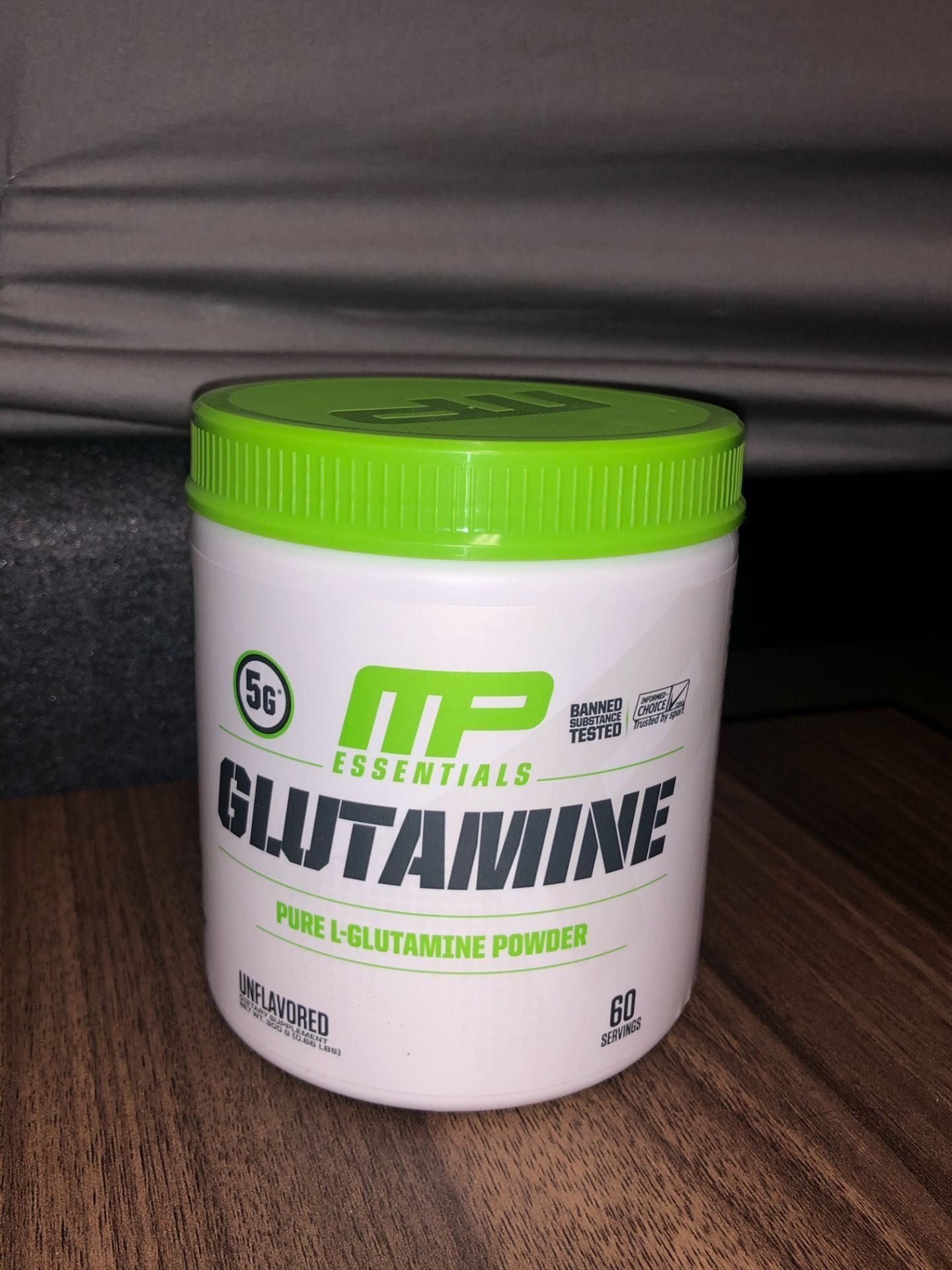Sometimes your diet just isn’t giving you the nutrition you need. Maybe, you just need a boost of energy to hit your maximum potential during a workout. After a workout, you may be sore and dehydrated. Workout supplements are a great way to compliment a balanced diet and exercise plan. They provide that little push to help you continue to improve when you feel like you’ve hit a plateau. I would divide my supplements into three categories.
First, there are supplements that fall under workout performance. Pictured below are the two that I use to maximize my efforts during training. Both are powders that mix with water. On the left is my pre-workout (fruit punch flavored). I drink this about 20-30 minutes before exercising to energize my muscles. Pre-workout is usually made with caffeine and creatine as the active ingredients followed by a mix of other sometimes helpful amino acids. Creatine is included to maximize the production of muscle tissue. It is able to make your muscles work more during exercise and can result in increased muscle mass later on. If taking pre-workout, it is important to note how much caffeine you are consuming. One scoop of my pre-workout contains 200 mg, but I usually only scoop out 3/4 of a serving. For comparison, one standard cup of coffee has 90 mg of caffeine, while a medium Dunkin’ iced coffee contains almost 300 mg. Regularly consuming moderate amounts of caffeine is also shown to have good long-term health effects.
On the right is my BCAA mix (blue raspberry flavored) that I drink throughout my workout. BCAA stands for branched-chain amino acids. The mix contains electrolytes to promote hydration- similar to Gatorade- and the BCAAs decrease muscle fatigue. When looking for BCAAs, the best mixture contains a 2:1:1 ratio of L-Leucine, L-Isoleucine, and L-Valine.
The second category is recovery. If looking to build muscle, supplementing your protein intake is a must. Exercise is only half of the path to muscle growth. Working muscles only breaks down tissues so they can be built back up stronger and grow. One serving contains 25g of protein and is a blend of five sources from whey protein to egg albumin. The blend is helpful because the different proteins digest at different rates. This allows the muscles to be “fed” for a long period of time after you have finished exercise.
Pictured on the right in glutamine. Glutamine is an amino acid that can prevent delayed-onset muscle soreness. This is what you feel when you exercise at 3 pm on Thursday and wake up sore Friday morning. From my personal experience, this is a lifesaver. It can be taken before or after working out, and the powder is flavorless, so I usually mix it into my pre-workout drink.
Finally, the last category contains nutrition supplements. Because my diet is fairly balanced, the only thing I take is fish oil. Fish oil provides healthy omega-3 fatty acids and vitamin D. Taking fish oil capsules on days when you don’t consume fish or other similar seafood has many long-term health benefits such as lower blood pressure. Recently, a study has even found that patients with sufficient vitamin D levels could have a lower chance of severe symptoms when contracting coronavirus.
Since supplements do not fall under the classification of “food” or “drugs” there are no mandatory regulations enforced by the FDA. This means that anything can be mixed together, packaged, and marketed as a workout supplement. For this reason, it is important to do your research and only buy from trusted companies that list all ingredients and have good reviews. Avoid anything made with a “proprietary blend” that hides true ingredients. I recommend starting with what you see on the grocery store shelf, and then looking further into the product. One company I would buy from is MusclePharm. Of everything I have tried, their products are good quality at a fair price.
Another consequence of this lack of regulation is that some supplements may not work at all. There have been many inconclusive studies performed, and results can vary a lot from person to person. I encourage you to explore as much as you can if you are interested and find what helps you.




It’s really impressive to see how structured your fitness routine is and how it impacts every aspect of your life. I personally haven’t tried any pre/post-workout supplements because I honestly feel like I only have enough time to exercise, and not much else, but it’s really impressive that you have worked this into your schedule. I also appreciated the fact that you warned us about the potential regulatory issues that some supplement brands have because I think this is also a very important point to consider.
Thank you for the information. I have been using whey protein for a couple of years and it has been pretty effective. I haven’t used it ever since I got into Penn State. I think I might start using it again and give a try to the other supplements.
The way you categorized the different types of supplements makes sense. A lot of people under-estimate the value of supplementing working out with the correct diet. A lot of people also do it incorrectly. There is a strong link between eating protein before working out and muscle growth, but the same strong link does not apply to people who eat protein only after working out. I also liked the comment at the end about being cautious of certain supplements. There is a huge market for selling fake or misleading supplements. Overall, this blog was very enjoyable to read.